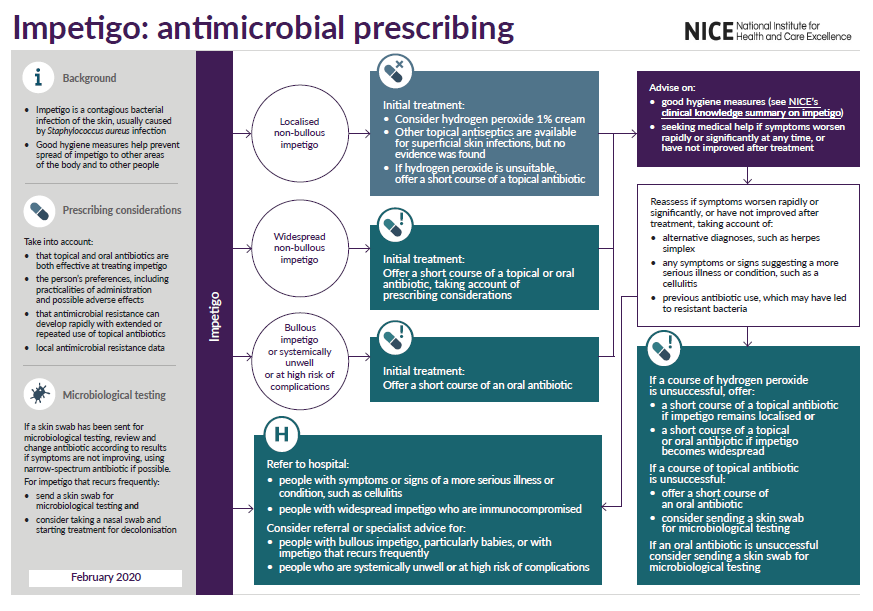Overview
This guideline sets out an antimicrobial prescribing strategy for adults, young people and children aged 72 hours and over with impetigo. It aims to optimise antibiotic use and reduce antibiotic resistance.
For managing other skin and soft tissue infections, see our topic pages on skin conditions and infections.
We have also produced guidelines on antimicrobial prescribing for cellulitis and erysipelas and antimicrobial stewardship: systems and processes for effective antimicrobial medicine use.
Recommendations
This guideline includes recommendations on:
- advice to reduce the spread of impetigo
- initial treatment
- reassessment and further treatment
- referral and seeking specialist advice
- choice of antimicrobial
Who is it for?
- Healthcare professionals
- People with impetigo, their families and carers
Guideline development process
How we develop NICE guidelines
NICE worked with Public Health England to develop this guidance.
Your responsibility
The recommendations in this guideline represent the view of NICE, arrived at after careful consideration of the evidence available. When exercising their judgement, professionals and practitioners are expected to take this guideline fully into account, alongside the individual needs, preferences and values of their patients or the people using their service. It is not mandatory to apply the recommendations, and the guideline does not override the responsibility to make decisions appropriate to the circumstances of the individual, in consultation with them and their families and carers or guardian.
All problems (adverse events) related to a medicine or medical device used for treatment or in a procedure should be reported to the Medicines and Healthcare products Regulatory Agency using the Yellow Card Scheme.
Local commissioners and providers of healthcare have a responsibility to enable the guideline to be applied when individual professionals and people using services wish to use it. They should do so in the context of local and national priorities for funding and developing services, and in light of their duties to have due regard to the need to eliminate unlawful discrimination, to advance equality of opportunity and to reduce health inequalities. Nothing in this guideline should be interpreted in a way that would be inconsistent with complying with those duties.
Commissioners and providers have a responsibility to promote an environmentally sustainable health and care system and should assess and reduce the environmental impact of implementing NICE recommendations wherever possible.
